The steam coming out of the humidifier is supposed to benefit our health and comfort. It removes sinus problems, prevents flu-like symptoms, and helps us sleep better. So when there is suddenly little to no mist emanating from the nozzle, we want it fixed as quickly as possible so we can go on our day without further inconveniences. But before we can fix it, we've researched how to identify the problem with the unit first.
If your Dyson humidifier does not have mist, it could be due to any of these issues:
- Low or no power
- The filter needs changing
- Debris clogging heat elements
- Not enough water
- No humidity control
The Dyson Humidifier has a lot of features that can improve your experience and some quirks that you will probably encounter as you use it. We have gathered some useful tips on how to care for your device as well as how you can maximize its benefits given its top-notch features. Keep reading to learn more!
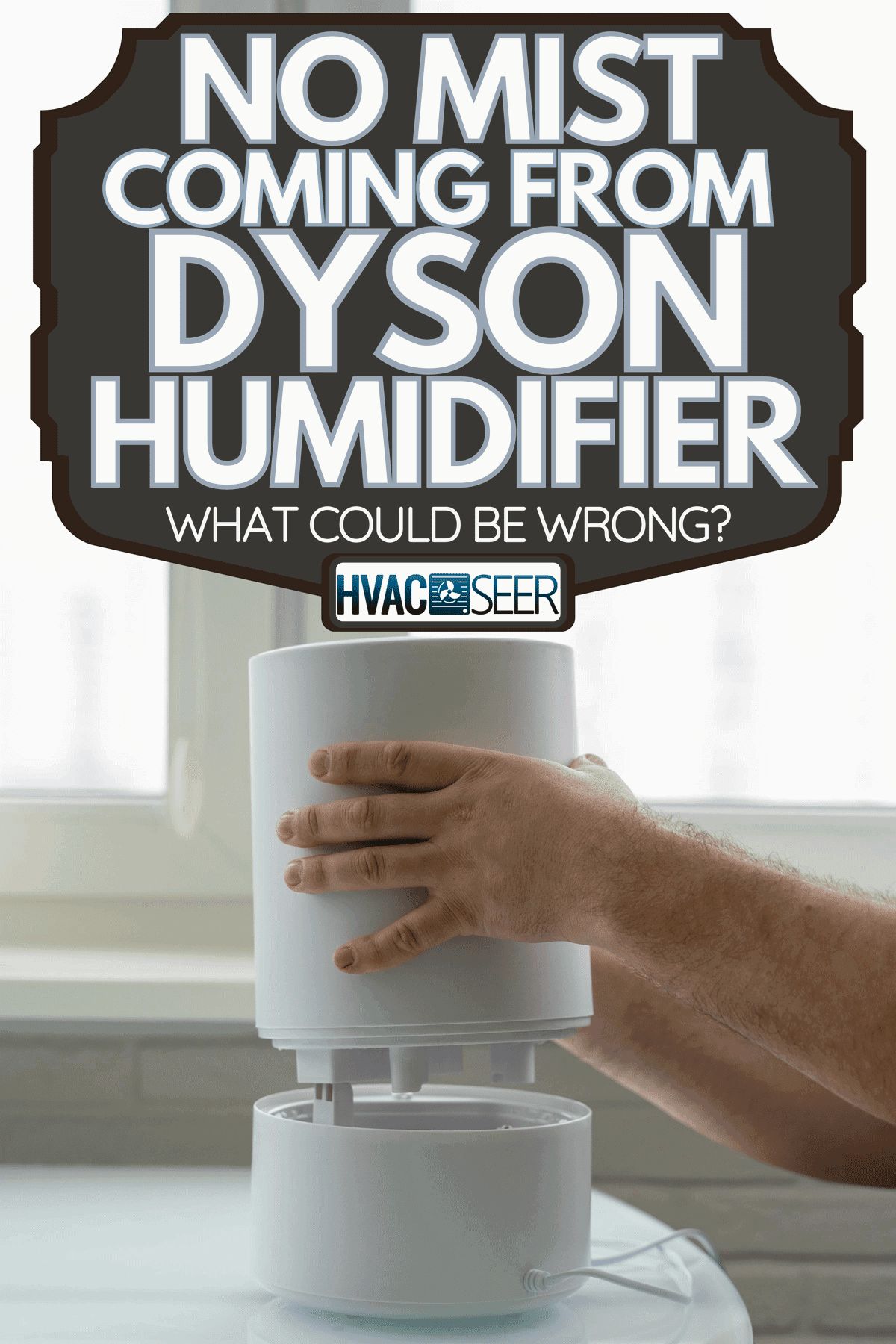
No Mist Coming From Dyson Humidifier—What Could Be Wrong?
Low or no power
Plug your unit and switch it on. If nothing happens, check your circuit breaker. Make sure your wires are not old since high-powered humidifiers can trip the circuit and disable your unit permanently.
If everything is ruled out, then there may be something wrong with the device itself, and it might be time to take a trip to the repair shop or take advantage of your warranty.
The filter needs changing
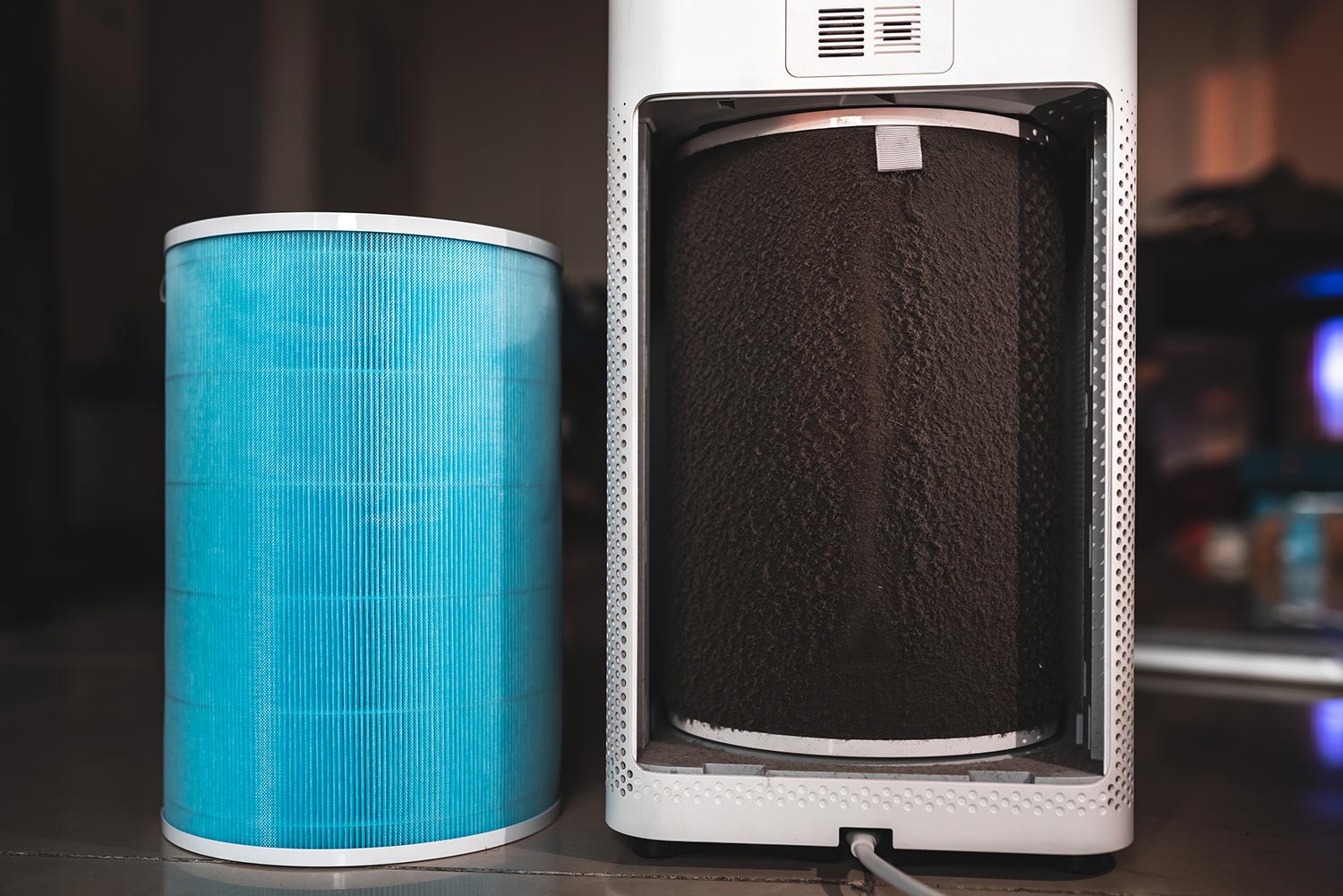
Overtime, the filter gets worn out and overpowered by impurities and mineral deposits. Cold mist humidifiers use a wick filter, while larger models such as a whole-house humidifier use a padding filter to distribute moisture around the house. These filters prevent debris from being carried into your home, so they could be clogged with dirt and prevent steam from coming out.
Debris clogging heat elements
Warm mist humidifiers carry the mist by boiling water in the heating element and shooting up the steam through the nozzle. However, mineral deposits do not evaporate, and they can stick to the heater until it forms an insulating layer where steam cannot escape. The crust will need to be washed off for the mist to come out again.
Not enough water
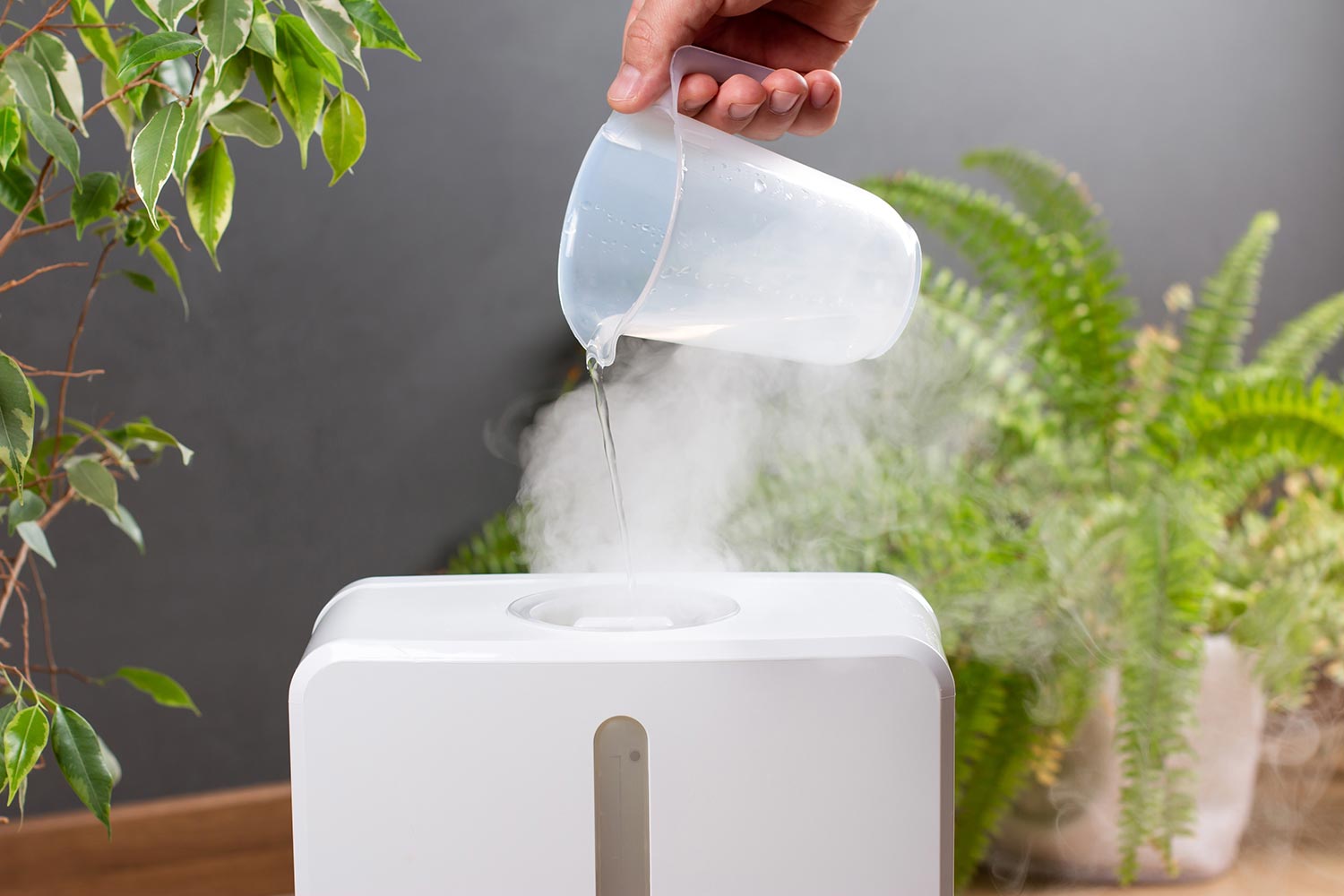
If there is little to no more water left on your Dyson humidifier, it will eventually stop since there is nothing to produce steam from. Make sure you have enough water in the tank to keep the device running and for it to produce mist.
No humidity control
Some humidifiers monitor the humidity level in an area and will switch on or off as necessary. It is recommended to set your humidity level to 70% or higher if the air is too dry. That way, your humidifier will work to reach 70% humidity in a room, which can take longer than if it is set lower than 60%.
Are diffusers and humidifiers the same?
Many online stores use humidifier and diffuser interchangeably because of their similar visuals—with steam coming up from the device. However, they are two different devices that provide different benefits and purposes, although both give off mists.
Humidifier in a nutshell
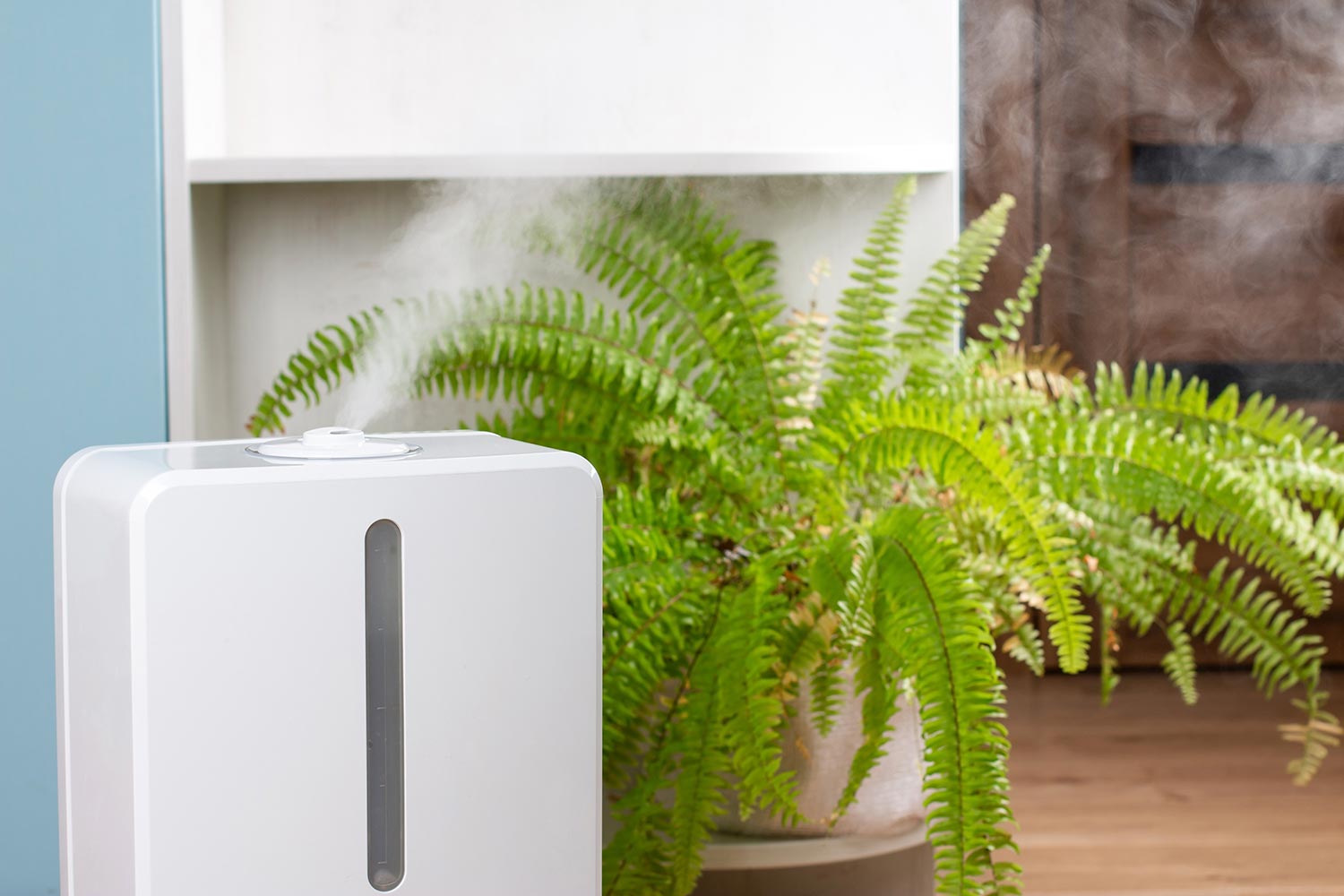
A humidifier’s sole purpose is to add moisture to a dry environment. It is especially useful during harsh winters and dry summers where the skin is more prone to drying. It also prevents flu-like diseases, nasal congestion, and throat dryness. Indoor plants also benefit from humidifiers, especially those that need a damp environment to thrive.
Diffuser in a nutshell
Diffusers add fragrance to the room and nothing else. They are an aromatherapy accessory where essential oils can be mixed with water. Although it has mist coming out of the nozzle, it does not increase humidity since the reservoir is only as big as a cup of water.
Can you drip medicine or essential oils in a humidifier?
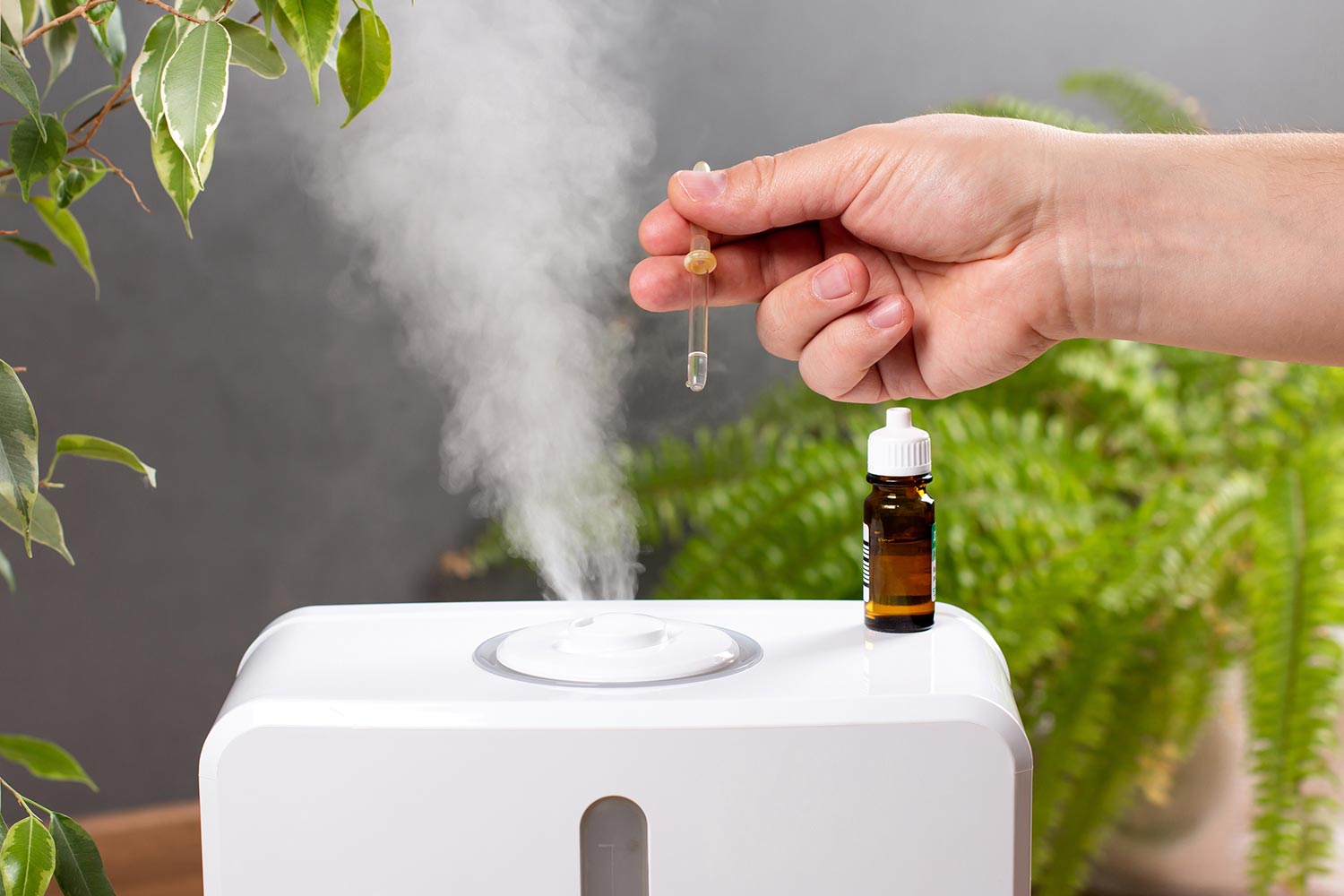
Since many confuse diffusers with humidifiers, some try to put things other than water into their unit. However, you should not do this as this can damage your device. You can put a liquid inhalant into your warm mist humidifier, but read the manual first to ensure that this will not break the unit in any way.
The Vicks VapoSteam inhalant can be used with Vicks Vaporizers and Humidifiers. See it on Amazon.
Read about the dangers of putting essential oils into your humidifier in this article.
Should you let your humidifier run all night?
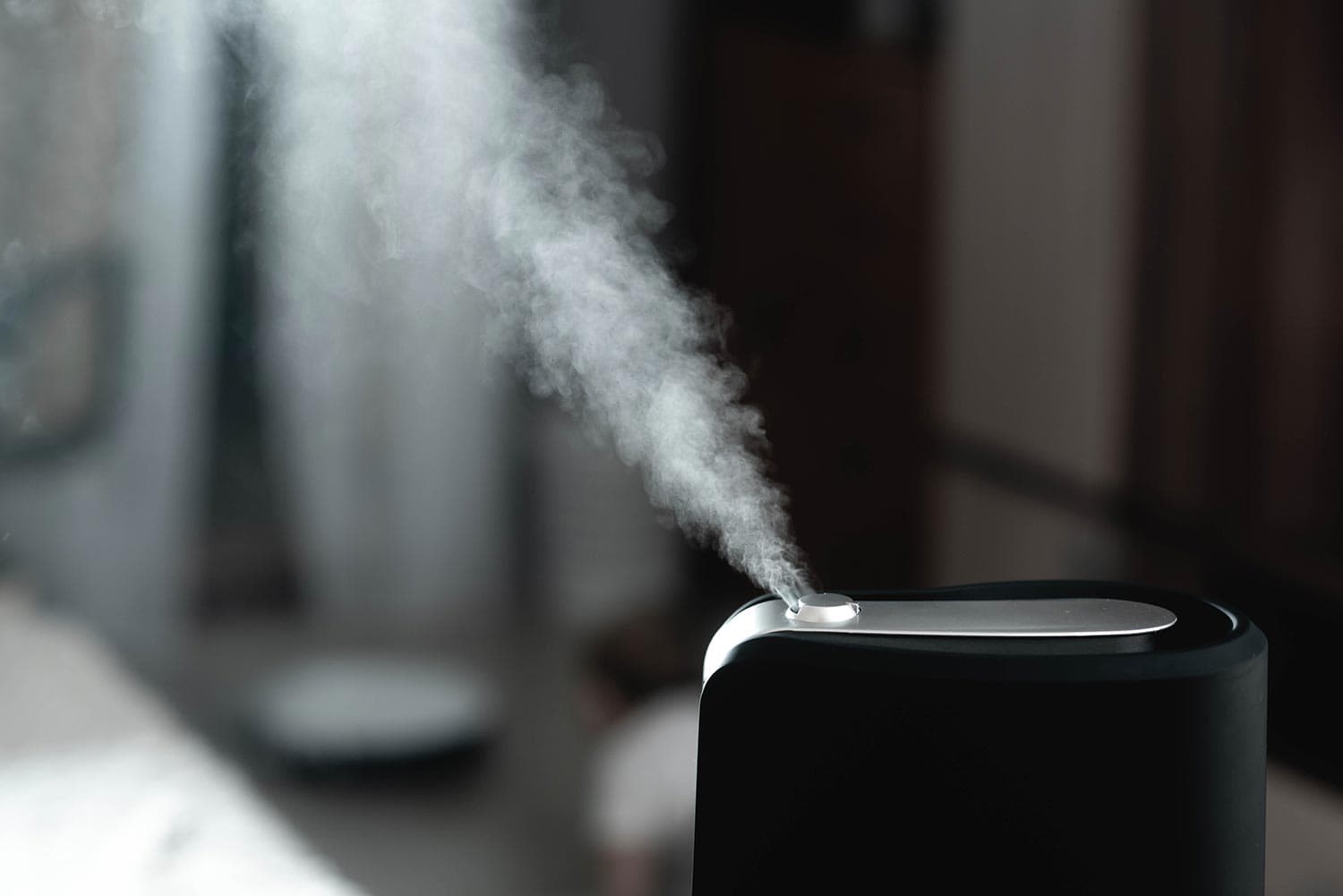
Warm mist humidifier
Warm mist humidifiers run on boiling water, so it might not be safe, especially if you have pets that can run amok at night. However, you can benefit from this if you live alone since the steam can help make you sleep better. At the same time, the boiling water also prevents mold and mildew from springing up.
Cold mist humidifier
Cold mists are safer to use if you have toddlers or pets who can potentially knock the device off the table. Cold mists provide the same benefits as a warm mist humidifier. However, you need to clean it more frequently to prevent bacteria from growing and spreading around your room.
What is the “gurgling” noise coming from the humidifier?
The gurgle you hear from your humidifier simply means that the humidifier is working. The sound is made when water is drawn to the base of the unit to produce vapor. However, if you want to reduce this noise, you can try loosening the tank cap a little bit to let the air create an even flow.
How long does a Dyson humidifier run?
Humidifiers can run from eight to over 16 hours of misting. Dyson offers humidifiers than can hold up to three liters of water which can run for up to 18 hours. The Dyson Pure Humidify+Cool has a reservoir that can hold one-gallon of water, giving off 36 hours of steam.
Learn more about how long humidifiers can run in this article.
Notable features of the Dyson Pure Humidify+Cool
Your Dyson humidifier comes with features that can aid you in your daily life—from stress relief to convenience to health benefits.
Automatic sensors
The device is capable of sensing pollutants and airborne particles and immediately removes them through its HEPA filter.
High-Efficiency Particulate Absorbing (HEPA) Filter
HEPA filters remove 99.7% of harmful particles such as dust mites, pollen, bacteria, and allergens. These bacterias are trapped in a random maze of fibers that are engineered to capture any type of particle, cleansing the air in your home as thoroughly as possible.
Smart Device Compatibility
The Dyson Link App enables its customers to view the air quality and temperature in the house. If the humidifier suddenly stops working, you can skip the hassle of doing trial-and-error and immediately spot the problem. For example, if your humidifier suddenly stops working, you can consult the app to check your humidity level and adjust your preferences as necessary.
Deep-Cleaning Capacity
This feature can prevent bacteria-caused problems that can potentially halt your humidifier from emanating mist. Simply press a button intended for deep-cleaning, and it will activate the process to remove any impurity and bacteria.
How often should you clean your humidifier?
To prevent the growth of mold and bacteria that can get your household sick, it is best to clean a cold mist humidifier every three days. For warm mist humidifiers, it is best to deep-clean it once a week. Smart humidifiers will alert you once it needs to have their filters changed or be deep-cleaned.
What type of water should you use in your humidifier?
The type of water to use depends on which kind of humidifier you choose. Distilled water is ideal since it has the least amount of mineral deposits and impurities as well as benefits your health the most.
However, tap water can still work for most people. Steam and evaporative models rarely encounter an issue with this water, and it can still give you the same benefit.
Water for ultrasonic humidifiers
Ultrasonic humidifiers are a bit more finicky. This is because they come with a cartridge that extracts mineral deposits, which can mix with your vapor water and even stop the humidifier from working. For ultrasonic humidifiers, it is best to use filtered or distilled water to protect your health and to keep the device running.
Final Thoughts
Your Dyson humidifier is equipped to run for long periods of time. So when it stops working, you probably just need to check if it needs deep cleaning, or if your humidity levels are simply not adjusted. As with any health-benefitting device, make sure you utilize its assets and maintain it well so it can last you a long time.

